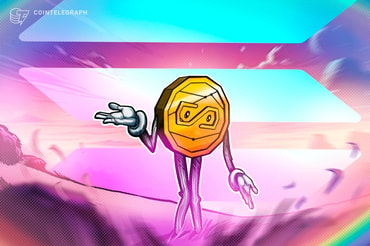The Protocol: Reinvent Ethererum, and Just Don’t Break Bitcoin

Election 2024 coverage presented by
Loyal readers of The Protocol will recall that we launched this newsletter on April 26, 2023, to cover technological developments across the blockchain industry, after winding down its predecessor, Valid Points, which was focused exclusively on Ethereum. (In case you’re interested in that history, we wrote here about how we turned $15,000 into $70,000 running an Ethereum validator.) We started covering Bitcoin technology in the newsletter along with Solana and Cosmos and Sui and everything else. Over time, the format evolved, and got a bit longer — as I increasingly geeked out over blockchain tech and found myself incrementally incompetent at leaving cool stuff out. I say that with utmost earnestness, because as the main author of The Protocol, I also got more and more snarky and cynical and jaded about the various news developments, especially regarding the money end of the business, while simultaneously getting more and more wowed by all of the developers and entrepreneurs in this space coming out with hundreds of fascinating projects and updates every week, as duly highlighted in the Protocol Village column. We launched an accompanying podcast that got really good until it was, er, paused indefinitely earlier this year due to the lack of a sponsor and departure of our producer.
ANYWAY, TO BURY THE LEDE: I am set to leave CoinDesk at the end of this week to explore some new ideas and start a new chapter, so I will be relinquishing my steely grip on The Protocol. At least in the short term, CoinDesk Deputy Editor-in-Chief Marc Hochstein is set to take the reins. I want to thank YOU, the readers of this newsletter, for tuning in over the past 19 months — that’s 19/12*7 = 11 years in crypto time — and for being so loyal and voracious that our open rate regularly ticked north of 50%, which is pretty phenomenal for pretty much any newsletter of any ilk. It has truly been a pleasure connecting with you all and serving as your sherpa on our collective weekly journey through the reliably massive amount of information there is to digest in this rich and complex space. I’m not totally sure what’s next for me; for a while I’ll be in “Stealth,” as a lot of the cool kids seem to stick at the top of their LinkedIn profiles. Best of luck to everyone!
IN THIS ISSUE:
Justin Drake introduces his proposed Beam Chain upgrade roadmap (Ethereum Devcon/YouTube)
BEAMING IN FROM BANGKOK: At Ethereum’s Devcon conference in Bangkok on Tuesday, Ethereum Foundation researcher Justin Drake revealed his proposal for a major redesign of Ethereum’s consensus layer called “Beam Chain.” Beam Chain is “a proposed redesign of the consensus layer that incorporates all of the latest and greatest ideas from the Ethereum roadmap,” Drake said in a speech at Bangkok’s Queen Sirikit National Convention Centre. Drake’s Beam Chain vision organizes a series of “big ticket” upgrades to Ethereum’s consensus layer into a single package. The changes include adjustments to Ethereum’s block production apparatus, as well as how it handles staking and zero-knowledge cryptography. Drake’s presentation was highly anticipated—coming after months of speculation online and in crypto forums that the influential Ethereum researcher, who was instrumental to the 2022 Merge upgrade, was working on something major. Drake delivered his remarks to a packed convention hall, with onlookers spilling out into the hallway outside of the event’s main stage. SEPARATELY, CoinDesk reported last week that the dollar value of the Ethereum Foundation’s treasury shrank 39% over 2.5 years to $970 million.
DOGE WHISTLE! A frenzied narrative that boosted dogecoin (DOGE) prices over 500% turned to reality — as President-elect Donald Trump announced Tuesday that it had picked Vivek Ramaswamy and technology entrepreneur Elon Musk to lead a new Department of Government Efficiency (DOGE) that seeks to make government spending and administration more efficient. Musk, a big supporter of Trump’s campaign, had been tweeting about the Department of Government Efficiency since early August. (This DOGE is not to be confused with D.O.G.E., a months-old and completely separate memecoin that went viral last week.) Even the New York Times’s coverage of Trump’s announcement flicked at the sly reference to DOGE. Musk, who owns the social media platform X, tweeted out what appears to be a cartoon promoting the new Department of Government Efficiency, featuring the face of a smiling dog.
Figure from just-published paper by prominent Bitcoin researchers mapping out a way of adding covenants to the blockchain without needing a soft fork. (Heilman, Kolobov, Levy, Poelstra)
A group of top Bitcoin developers collaborating across multiple teams claimed a breakthrough on the oldest and largest blockchain, outlining a way of adding a type of programming known as “covenants” that could unlock crucial functionality such as new wallet and vault features and more efficient layer-2 protocols. Importantly, the technique would not require changes to Bitcoin’s main underlying code, a notoriously fraught process where consensus is typically seen as the threshold required to greenlight major upgrades known as a “soft fork.” The announcement was detailed on Thursday in a research paper titled, “ColliderScript: Covenants in Bitcoin via 160-bit hash collisions.” The team was led by Ethan Heilman, who separately is one of the authors of a proposed technique known as OP_CAT that could increase Bitcoin’s programmability. However, that effort would require changes to the Bitcoin software, as would a separate proposal for covenants known as OP_CTV, proposed by the developer Jeremy Rubin. Other authors of the new research paper include Victor Kobolov and Avihu Levy of the StarkWare project and Andrew Poelstra, a longtime Bitcoin developer who currently serves as head of research at Blockstream.
Linea, the rollup blockchain built by Ethereum development firm Consensys, is on the brink of releasing its “LINEA” token, the company told CoinDesk’s Sam Kessler. Consensys was founded by Joe Lubin, one of the co-founders of Ethereum, and is today best-known as the company behind MetaMask, the most popular Ethereum wallet. The Linea network was released last year and represents Consensys’ attempt to compete with a growing fray of layer-2 networks — blockchains that help scale Ethereum by offering users an extra lane for transacting more quickly and cheaply.
Roman Sterlingov, 36, a Russian-Swedish national who was convicted of four U.S. federal charges related to running the no-longer-operational bitcoin mixing service Bitcoin Fog, was sentenced to 12 years and six months, the Justice Department said in a press release. Also, “Sterlingov was sentenced to pay a forfeiture money judgment in the amount of $395.6 million, and forfeiture of seized cryptocurrencies and monetary assets valued at approximately $1.76 million. In addition, Sterlingov was ordered to forfeit his interest in the Bitcoin Fog wallet, totaling approximately 1,345 BTC and currently valued at more than $103 million,” the government said.
FUN FACT: Will Foxley, shown here opening OP_NEXT as the conference emcee, was a co-author of the Valid Points newsletter, the predecessor of The Protocol. (Danny Nelson/CoinDesk)
BOSTON –– Most of the world focuses on bitcoin (BTC)’s zipping price. Not so for the 100-odd bitcoiners who gathered at Fidelity Investments’ headquarters over the weekend.
They were preoccupied with helping the original cryptocurrency conquer the world – and meantime avoid getting wrecked.
“This is about getting bitcoin to the next billion people,” said Will Foxley, emcee of OP_NEXT, what he claimed was the first bitcoin scaling conference in five years.
OP_NEXT is the newest anomaly on crypto’s overstuffed conference circuit. It’s got none of the retail-friendly bravado of Bitcoin Nashville. It lacks the corporate booths that dot ETH Denver. Few of its speakers shilled their crypto-business ventures, as nearly everyone did at Solana’s rebooted Breakpoint.
Instead, dozens of hoodie-wearing coder boys (and a handful of women) debated improvements that might make bitcoin more useful, usable, and even resilient against faraway problems that could one day upend the world’s most valuable cryptocurrency.
CLICK HERE FOR THE FULL STORY BY COINDESK’S DANNY NELSON
Fundraisings
Deals and grants
Ankr CEO Chandler Song (Ankr)
Data and Tokens
Regulatory and Policy
Top picks of the past week from our Protocol Village column, highlighting key blockchain tech upgrades and news.
Schematic illustrating Espresso’s system architecture (Espresso)
NEAR founder Ilia Polosukhin making the announcement on Sunday in Bangkok at NEAR’s side event, Redacted (NEAR)
Disclosure
Please note that our privacy policy, terms of use, cookies, and do not sell my personal information have been updated.CoinDesk is an award-winning media outlet that covers the cryptocurrency industry. Its journalists abide by a strict set of editorial policies. CoinDesk has adopted a set of principles aimed at ensuring the integrity, editorial independence and freedom from bias of its publications. CoinDesk is part of the Bullish group, which owns and invests in digital asset businesses and digital assets. CoinDesk employees, including journalists, may receive Bullish group equity-based compensation. Bullish was incubated by technology investor Block.one.
Bradley Keoun is the managing editor of CoinDesk’s Tech & Protocols team. He owns less than $1,000 each of several cryptocurrencies.

Published on Other News Site




















